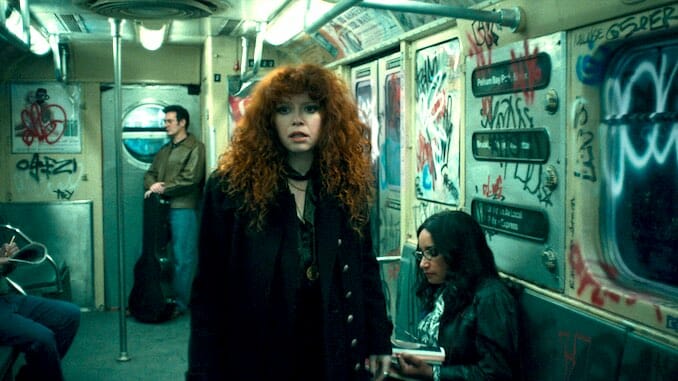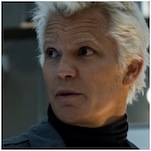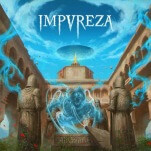How Russian Doll Season 2 Uses Time Loops to Confront Trauma—and Nazis
Photo Courtesy of Netflix
Russian Doll is a Netflix series about a woman named Nadia Vulvokov (Natasha Lyonne) who keeps getting caught in time travel paradoxes to deal with familial trauma. In the first season, she was stuck in a time loop that you might call “conventional Groundhog Day style.” Nadia kept reliving the night of her 36th birthday, dying in different ways and unpacking the effects of her relationship with her mother, Lenora (Chloë Sevigny). Eventually, through Nadia’s choices and those of her compatriot Alan Zaveri (Charlie Barnett)—who is stuck in a time loop on the same day, after the woman he was going to propose to ends their relationship—the timeline started to degrade until they figured out how to fix their lives. In Season 2, the relationship with time gets even more complicated, as Nadia traces her family history and the fraught relationships she, her mother, and grandmother shared, as the show shifts gears and shines a light on the Nazi theft of Jewish personal property leading up to and during World War II.

Season 2 of Russian Doll developed this mysterious speculative fiction plot device by creating an experience where Nadia’s consciousness moves through the bodies of her mother and grandmother at different periods of their lives. Nadia discovers that taking a certain train in the New York Metro system also takes her back in time, where she experiences her mother’s life in the days leading up to Nadia’s birth in 1983. Later, she discovers the train can take her to Budapest in 1944, where she embodies her maternal grandmother, Vera Peschauer (Ilona McCrea). There, she recovers some of the goods the Nazis stole from the family, finds a safe hiding place, and entrusts a sympathetic priest to send Vera instructions to recover them. Then, Nadia embodies Vera again in 1968, where she’s recovered the valuables with her friend Delia (Athina Papadimitriu) and is exchanging them for South African gold Krugerrand coins. But Nadia-as-Vera wants to get something else to avoid the familial trauma tied to the Krugerrands. Vera’s daughter and Nadia’s mother, Lenora, eventually steals them and loses them, robbing Nadia of her inheritance (except for the single Krugerrand she wears as a necklace pendant).
As Lenora, Nadia tried to recover the gold. As Vera, she tried to avoid ever getting it. In the end, she realizes she can only ever do what was already done; she can’t prevent the family heirlooms from being exchanged for Krugerrands, and she can’t prevent the Krugerrands from being stolen and lost. Regardless of whether this is a matter of her basically playing through a simulation to experience an up-close version of what has already happened, or if she is the key to it happening, what’s important is that the show uses questions about predetermination and destiny not to render choice meaningless but to tell audiences we can choose to try to understand what we cannot change. In Nadia’s case, those unchangeable things are the trauma caused by fractious matriarchal relationships. By living as Vera and as Lenora, she better understood what they went through and was able to find peace with the situation of what her life might have been like had things gone differently for her mother.
Beyond the artistic value of exploring trauma, one of the great strengths of the new season of Russian Doll is that it highlights Nazi war crimes and theft. Russian Doll isn’t about Nazism as far as focusing on the rise of the Third Reich. It’s not about indicting or excusing the complicity of the German population. It is, however, outspoken about history, highlighting dimensions of the Nazis and the Holocaust that are often overlooked, if not unknown. For instance, at one point Nadia jokes to Annie Murphy’s Ruth (her godmother and the late Lenora’s best friend) about the Nazi higher-ups being amphetamine addicts, to which Ruth says, “Sweetheart, that’s all common knowledge.” A generation back, Delia (Vera’s best friend and essentially Lenora’s godmother) is a woman of Romani heritage, a smaller ethnic group that Nazis also focused on exterminating, but who are sometimes overlooked, much like the Nazi’s project to exterminate queer people and political dissidents is often forgotten. That process of forgetting allows the complacent and the bad-acting to erase real parallels between the rise of the Nazi expression of fascism in Europe and the rise of contemporary far-right movements. Sort of like we’re seeing in the Republican party’s interest in erasing the blemishes of American history, erasing gay and transgender people and, in fact, obscuring the Holocaust.
-

-

-

-

-

-

-

-

-

-

-

-

-

-

-

-

-

-

-

-

-

-

-

-

-

-

-

-

-

-

-

-

-

-

-

-

-

-

-

-








































